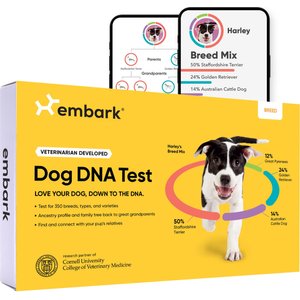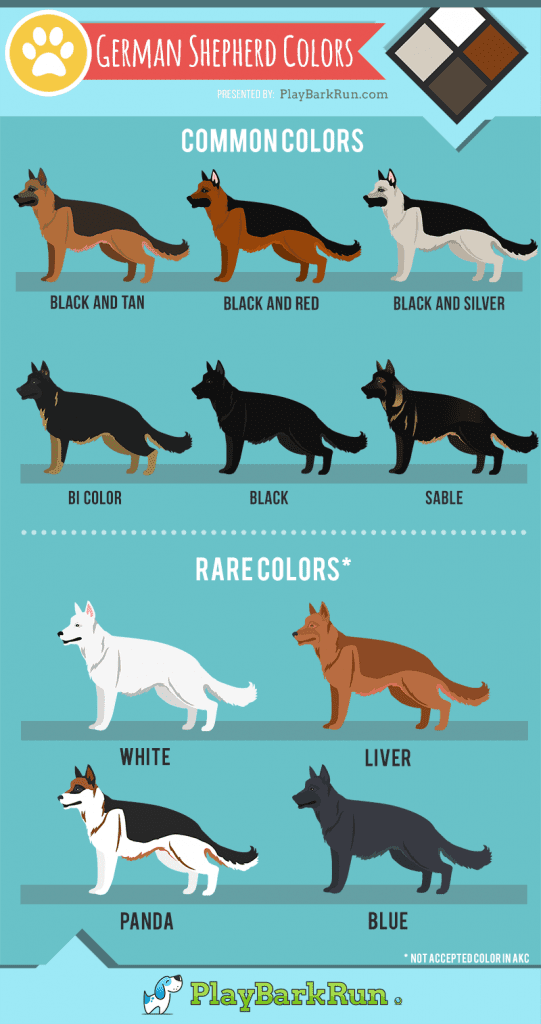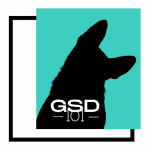Disclosure: This post contains affiliate links. We may earn a small commission if you decided to make a purchase, at no additional cost to you.
If you’ve just rescued or given a puppy or an adult dog, it might be tempting to find out whether the pup is purebred or a mixed breed. Why? With a purebred dog, you’ll be certain of which gene was inherited. That means you’ll be able to predict your dog’s temperament, look, body size, length of the coat, and even potential health and behavioral issues.
To determine whether a German Shepherd is purebred, you can use DNA test kits, observe their physical characteristics like erected ears and double coats, look for behavioral traits, check the registration certificate, consult an expert like a vet, or even use dog scanning apps.
In this article, we will walk you through a handful of ways to help you distinguish whether your pup is a purebred German Shepherd or not.
What’s in a purebred German Shepherd?
But first thing first, you need to ask the question:
“What was a German Shepherd originally developed for ?”
The German Shepherd Dog was originally bred for herding. With their high intelligence, high self-confidence, trainability, and ability to focus, they are now widely used as police dogs, military messengers, and guard dogs. That said, you would expect these traits hard-wired to this breed:
- High energy (for sheepherding in the first place)
- A compulsion to chase things that move quickly
- Swift responsiveness to their human/master/handler
- Aloofness toward strangers
- Protective/territorial instincts
All of those traits are what you get in an ideal German Shepherd. One of the most capable and trainable breeds in all of dogdom, an ideal German Shepherd, when properly raised by a confident owner, can be a magnificent companion.
By Michele Welton, Dog Trainer, Behavioral Consultant, Author of 15 Dog Books
Seven ways to tell whether your German Shepherd is purebred
Here are the seven ways you can use to determine whether you have a purebred German Shepherd:
1. DNA test
A DNA test should be the most obvious way to help you better understand the overall genetic makeup of your dog.
On top of that, these special tests can identify any possible health conditions and whether your dog can pass on the genes linked with these conditions to future generations of puppies.
How does DNA test work?
All you have to do is to swab your dog’s cheek to get DNA, and mail the sample in. And you’ll get details on your pup’s ancestry as soon as 1 week. Simple and easy.
The DNA report will show you the details on your dog’s breed composition, as well as information on your dog’s dominant breeds and the associated personality traits and health issues.
Here are our top picks:
| DNA Test | Number of breeds checked | Results back in | Features | Price* |
| Best overall Embark Breed Identification & Health Condition Identification DNA Test for Dogs |
350+ | Up to 3 weeks | 215+ health risks, 35+ physical traits | From $199 |
| The budget-friendly choice DNA My Dog Breed Identification Test Kit |
97 | 2 weeks | Health concerns personality traits | From $68.99 |
| The fastest choice Wisdom Panel Essential Breed Identification DNA Test for Dogs |
350+ | As soon as 1 week | 25+ tests for medical issues | From $99.99 |
| The most accurate choice Embark Breed Identification DNA Test for Dogs |
350+ | Up to 5 weeks | Relative finder (family tree feature) | From $129 |
Best overall
Embark Breed Identification & Health Condition Identification DNA Test for Dogs

This is the most comprehensive choice for health and trait checks in the market. It is also the best test kit for mixed breed or designer breed dog owners who want to get their dog’s breed breakdown and genetic health profile.
Main features:
- 210+ Health Risks
- 35+ Physical Traits
- 350+ Breeds
- Family Tree
- Relatives
- More
The fastest choice
Wisdom Panel Essential Breed Identification DNA Test for Dogs

Wisdom Panel Essential Breed Identification DNA Test for Dogs is made for people who want to get the fastest results – that are available as soon as about one week. And, the cost is significantly more budget-friendly.
The most accurate choice
Embark Breed Identification DNA Test for Dogs

Embark is by far one of the most accurate DNA tests on the market. Their kits check the dog’s ancestry, breed, traits, and they detect possible genetic disease risks
It will also dig up more information pertaining to your pet’s lineage from over 3 generations ago. Perhaps you’ll find out that your poodle isn’t as pure as you once originally thought.
2. Look for German Shepherd-specific physical characteristics
According to the German Shepherd breed standard, a purebred German Shepherd also has some key physical characteristics that set them apart from mixed breeds. For instance:
Purebred German Shepherds have a balanced strong build
The average size for an adult male GSD is around 24 to 26 inches tall at the shoulder and weighs between 85-100 pounds. A fully grown female GSD is about 20 to 22 inches tall and weighs from 60 to 75 pounds.
Also read: Male vs Female German Shepherds: How to Choose?
This size can also vary depending on the type of German shepherd (working line vs show line). For example, if you get a working line German shepherd, you can expect it to be larger than its show line counterpart.

The upper line runs from the base of the neck via the high, long withers and via the straight back towards the slightly sloping croup, without visible interruption.
The back is moderately long, firm, strong, and well-muscled. The loin is broad, short, strongly developed, and well-muscled.
The croup should be long and slightly sloping (approx 23° to the horizontal) and the upper line should merge into the base of the tail without interruption. (Source: USCA)
Purebred German Shepherds have pointed ears
You can check for this distinctive feature as early as your dog is a puppy.
Erect ears are in German Shepherd’s breed standard -If your German Shepherd puppy is purebred and has been bred according to the breed standard, you can expect to see upright ears
A purebred German Shepherd’s ears will stand up on their own at anytime between 8 to 20 weeks (5 months old). Until they are completely up, they flop around, go up and down. Until they are completely up, they tend to flop around, go up and down.
Also read: When Will My German Shepherd Puppy’s Ears Fully Stand Up?
Purebred German Shepherds have well-proportioned heads and faces
Their head is wedge-shaped, and in proportion to their body size (length about 40 % at the height at the withers), without being plump or too elongated, dry in the overall appearance, and moderately broad between the ears.

Seen from the front and side, the forehead is only slightly arched and without any or with only a slightly indicated middle furrow.
The eyes are of medium size, almond-shaped, slightly slanted, and not protruding. The color of the eyes should be as dark as possible. Light, piercing eyes are undesirable since they impair the dog’s impression. The nose must be black. (Source: USCA)
3. Check your Dog’s coat
One of the most fool-proof reasons to tell if your German Shepherd is purebred or not is to look at the texture of the coat.
A purebred German Shepherd should always have a double coat, which can appear as a short or long-haired coat.
Regardless, German Shepherds shed regularly throughout the year and require regular brushing and grooming. The undercoat should show a light greyish tone.
Purebred GSD comes with black with reddish-brown, brown, and yellow to light grey markings; single-colored black, grey with darker shading, black saddle, and mask.

4. Observe behavioral traits (aka temperament)
Purebred German Shepherds have high energy levels
If you are a first-time German Shepherd owner, you will need to be prepared for a German Shepherd’s super high energy level.
This breed requires plenty of exercises each day, so it’s also a great idea if you have a large backyard. Without proper exercise, they may engage in destructive behavior, like digging and chewing.
Also read:
Do German Shepherds Have Good Temperament?
Are German Shepherds Good Family Dogs?
Are German Shepherds Dangerous? Here’s What You Need to Know
Purebred German Shepherds are extremely loyal
The German Shepherd’s personality is aloof but not usually aggressive. They don’t make friends immediately, but once they do, they’re extremely loyal. With their family, they’re easy-going and approachable, but when threatened, they can be strong and protective, making them excellent guard dogs.
They have a strong bond with the entire family and are untrustful of strangers. Also, German Shepherds are very protective of their families and their property, so if you are entirely new to this breed, you may need to reach out for added expert advice.
Also read: Why Are German Shepherds So Loyal?
Purebred German Shepherds are intelligent
Due to their high intelligence, they are preferred as working dogs in police departments, rescue teams, and search crews.
If you think your puppy can pick up your training quickly, chances are they may have a lot of German Shepherd DNA in him! Regardless, you will need to keep them disciplined and mentally stimulated.
Also read: Why Are German Shepherds So Smart? Can They Outsmart You?
Purebred German Shepherds are naturally protective and possessive
German Shepherds are extremely protective and loyal dogs, especially when it comes to their families and their territory. This trait will quickly manifest itself as protectiveness when a potential enemy is approaching. That said, a purebred German Shepherd will intimidate a potential threat to its owners and their property without questions.
Also read: Will A German Shepherd Attack an Intruder Untrained?
5. Consult experts
Another great way to check if your dog is a purebred German Shepherd or not is to ask experts, such as veterinarians or previous owners.
A skilled veterinarian can give you plenty of valuable insight into this breed. They can inform you of the physical characteristics of German Shepherds and their most common traits.
A breeder can also help answer any questions you may have about your German Shepherd. If you are considering buying or adopting a puppy, find a reliable German Shepherd breeder and ask many questions about the dog’s history. Also, make sure to check the dog’s paperwork where the breed of the parents is outlined. You will want to get a puppy from an American Kennel Club licensed breeder.
A previous German Shepherd owner could grasp what a purebred dog looks and behaves like. However, this method may be unreliable, as many mixed breeds seem to look and behave like a purebred GSD would.
6. Check the registration certificate (if you have it)
If you purchase a purebred German Shepherd from a reputable breeder, you should get a registration certificate. This certificate shows your dog’s birth with a registry in the AKC.
In essence, a registered puppy is a “puppy with papers”. In addition, the registration certificate reveals the record of the dog’s ownership and breeding.
7. Use dog identification apps
Using dog identification apps is an innovative way to help you identify the breed of your dog by scanning a picture of a dog.
All you have to do is to submit a picture of your pooch taken from your phone. Then these apps will do their analysis and return a short description of the breed as well as a match percentage of the breed.
Of course, these apps may be a little more than a fun video game and are not as accurate as DNA tests.

The Dog Scanner app will identify your dog’s breed reliably in just a few seconds! Besides taking a picture, you can also record a video or upload an image from your gallery.
Share your results and compare them to the results of the community! Upload pictures of your favorite dog to our Social Feed and share them with other dog lovers! Have a look at the profiles and photos of other users, like and comment on posts from our dog community and filter them by date or popularity!
Conclusion
Regardless of the result, your new furry friend deserves all of your love. Any dog, whether it’s a purebred German Shepherd or a mixed breed, will give you unconditional love and loyalty for the rest of their life.










